Born into a humble village family, Giuseppe Verdi had his first music lessons from a local organist. His lessons were supported by local people, such as the tradesman Antonio Barezzi, who admired the young man's talent.
He was refused entrance into the Milan Conservatoire because he was too old, so he studied with a private teacher at Milan's La Scala opera house instead.
In the years 1838-40 Verdi suffered a devastating emotional loss of his son, daughter and wife all dying. He sank into a depression, but with the encouragement of his friends, he worked away at composing, and in 1839 he experienced his first big success with the production of his opera, Nabucco.
This was followed by the opera Ernani and then, finally, Verdi composed his first fully mature operas, Rigoletto (1851), Il Trovatore (1853) and La Traviata (1853). He was now recognized as Italy's foremost opera composer.
Verdi was now relatively wealthy and bought his own estate near Busseto. He also began touring overseas -- Paris, then St. Petersburg (1861), and London (1862; 1875).
In 1874 he composed the spectacular opera, Aida, which was staged in a new opera in Cairo, Egypt -- in celebration of the opening of the Suez Canal in 1871.
He wrote a Requiem in 1874 to celebrate the life of the Italian poet and novelist, Alessandro Manzoni.
Then came a relatively quiet period in Verdi's creative life until he reached his old age and composed two more very important operas, Otello (1887) and Falstaff (1893).
During his life Verdi was a fervent nationalist and Italian patriot. His operas became symbols of Italy's ongoing struggle for independence from Austria (the Risorgimento movement). For example, the opera Nabucco (1841), which featured an exiled people seeking freedom, was viewed by Italians as a symbol of their own fight for liberation.
He was elected as a Deputy to the first Italian parliament in 1861 but found the parliamentary duties not to his liking and resigned in 1865. However, from 1875 he took up duties as a Senator.





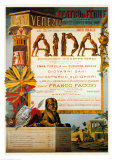
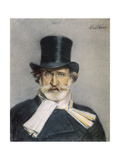
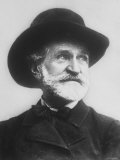



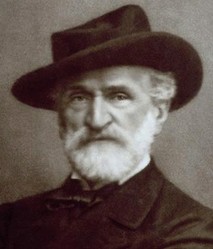

 Ancient Rome: History and Heritageon 02/28/2012
Ancient Rome: History and Heritageon 02/28/2012
 Ancient Greece: History and Heritageon 10/14/2012
Ancient Greece: History and Heritageon 10/14/2012
 Schumann: The Genius Who Composed Scenes From Childhoodon 04/29/2012
Schumann: The Genius Who Composed Scenes From Childhoodon 04/29/2012
 Mahler: The Genius Who Composed the Resurrection Symphonyon 03/04/2012
Mahler: The Genius Who Composed the Resurrection Symphonyon 03/04/2012

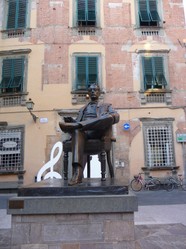
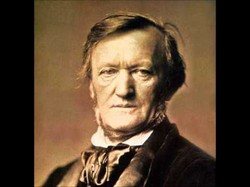
Comments
I love La Traviata! Lovely page.
Music of Giuseppe Verdi is part of world cultural heritage. I know people who would not enter a theater or opera house even if you pay them, but when they hear a popular part from one of his pieces start mumbling in the rhythm of his timeless music. His work simply overpower their prejudices.
Thanks for great overview of the maestro!
Thank you, Mladen. Verdi is widely loved. Even his great rival, the composer Richard Wagner, spoke of Verdi as a "a name that will leave a most powerful impression on the history of art".
I love his operas! Nabucco and Aida are in my hearth from the first hearing when I was child.
This is well written and informative article on Verdi. Genius like Verdi deserves to have an article on wizzley!
Thanks, katiem2. Glad you are enjoying the series!
Thank you for continuing to bring are in music to us. Love the videos. Verdi is a genius for certain, I've enjoyed this a great deal.